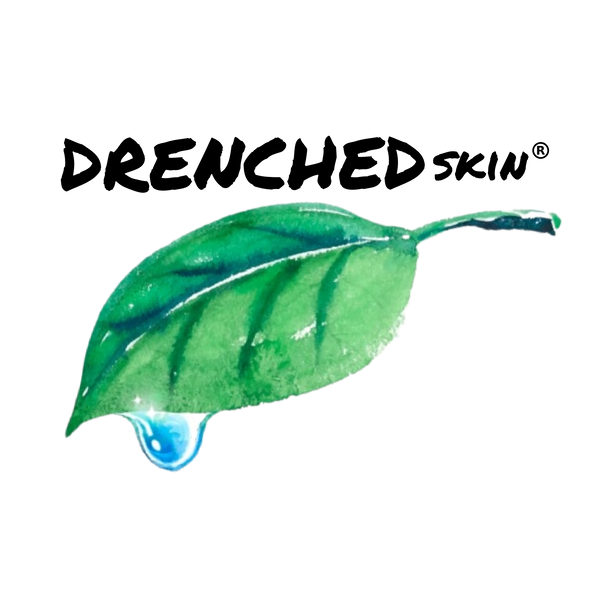Demystifying Retinyl Palmitate: Your Ultimate Guide
What is Retinyl Palmitate?
Retinyl Palmitate is an ester of retinol (vitamin A) and palmitic acid. It's a common ingredient found in various skincare products, including creams, lotions, and sunscreens. It's often used in these products because of its ability to promote healthy skin cell production and its antioxidant properties.
What Are the Benefits of Retinyl Palmitate?
Retinyl palmitate is lauded for its potential benefits in skincare. It is believed to assist in reducing the appearance of fine lines and wrinkles, improving skin texture, and promoting a more youthful complexion. Additionally, retinyl palmitate is often considered a gentler alternative to other forms of vitamin A, making it suitable for individuals with sensitive skin.
- Promotes Skin Renewal: As a derivative of vitamin A, it promotes the growth of healthy skin cells, leading to improved texture and tone.
- Anti-Aging: It can help reduce the appearance of fine lines and wrinkles by boosting collagen production.
- Antioxidant: It helps to neutralize harmful free radicals, protecting the skin from environmental stressors.
- Improves Skin Tone: Regular use can lead to more even skin tone and reduced appearance of dark spots.
How Does Retinyl Palmitate Work?
Retinyl Palmitate works by converting into retinol (an active form of vitamin A) when applied to the skin. The retinol then stimulates the production of new skin cells and collagen, resulting in smoother, younger-looking skin. Its antioxidant properties also work to protect the skin from damage caused by free radicals and UV exposure.How to Use Retinyl Palmitate
Retinyl Palmitate is commonly found in skincare products like creams, lotions, and serums. When incorporating retinyl palmitate into your skincare routine, it's important to start with a lower concentration to allow your skin to acclimate to the ingredient. Begin by using it a few times a week, gradually increasing frequency as your skin becomes accustomed to it. It's crucial to use sunscreen when using products containing retinyl palmitate, as it may increase skin sensitivity to the sun. Additionally, it's advisable to apply retinyl palmitate in the evening, as vitamin A derivatives can break down in sunlight and become less effective.
Who Should Use Retinyl Palmitate?
Retinyl Palmitate is generally suitable for all skin types. It's particularly beneficial for those looking to combat signs of aging, improve skin texture and tone, and promote overall skin health. However, individuals with sensitive skin or those who are pregnant or nursing should consult with a dermatologist before incorporating products containing Retinyl Palmitate into their skincare routine
Potential Side Effects and Precautions
- While Retinyl Palmitate is generally safe for most people, some may experience side effects such as redness, peeling, increased skin sensitivity, and dryness. These side effects are usually mild and subside with continued use. However, if irritation persists, discontinue use and consult a healthcare provider.
- It's also worth noting that Retinyl Palmitate, like all retinoids, can increase skin’s sensitivity to the sun. Therefore, it's essential to use sun protection while using products containing Retinyl Palmitate.
FAQ about Retinyl Palmitate
Is Retinyl Palmitate safe during pregnancy?
As a precaution, pregnant or nursing individuals are often advised to avoid products containing retinoids, including Retinyl Palmitate. Always consult with a healthcare provider before starting any new skincare routine during pregnancy or breastfeeding.
Can I use Retinyl Palmitate with other skincare ingredients?
Retinyl Palmitate is generally safe to use with other skincare ingredients. However, it's always best to do a patch test when introducing new products into your skincare regimen.
What DRENCHEDskin products contain Retinyl Palmitate?
*Limited Edition* RENEWAL Vitamin A Booster Serum
Our Renewal Vitamin A Booster Face Serum that contains 0.3% Retinyl Palmitate. This potent elixir is designed to deliver a multitude of benefits to your skin, helping you achieve a radiant, youthful-looking complexion.
Unscented for those with sensitivities to fragrance.
Citations:
- Mukherjee, S., Date, A., Patravale, V., Korting, H. C., Roeder, A., & Weindl, G. (2006). Retinoids in the treatment of skin aging: an overview of clinical efficacy and safety. Clinical interventions in aging, 1(4), 327–348.
- Kligman AM. Guidelines for the use of topical tretinoin (Retin-A) for photoaged skin. J Am Acad Dermatol. 1989;21(3 Pt 2):650-654.
- Pilkington, S. J., Belden, S., & Miller, R. A. (2015). The Tricky Tear Trough: A Review of Topical Cosmeceuticals for Periorbital Skin Rejuvenation. Journal of clinical and aesthetic dermatology, 8(9), 39–47.

